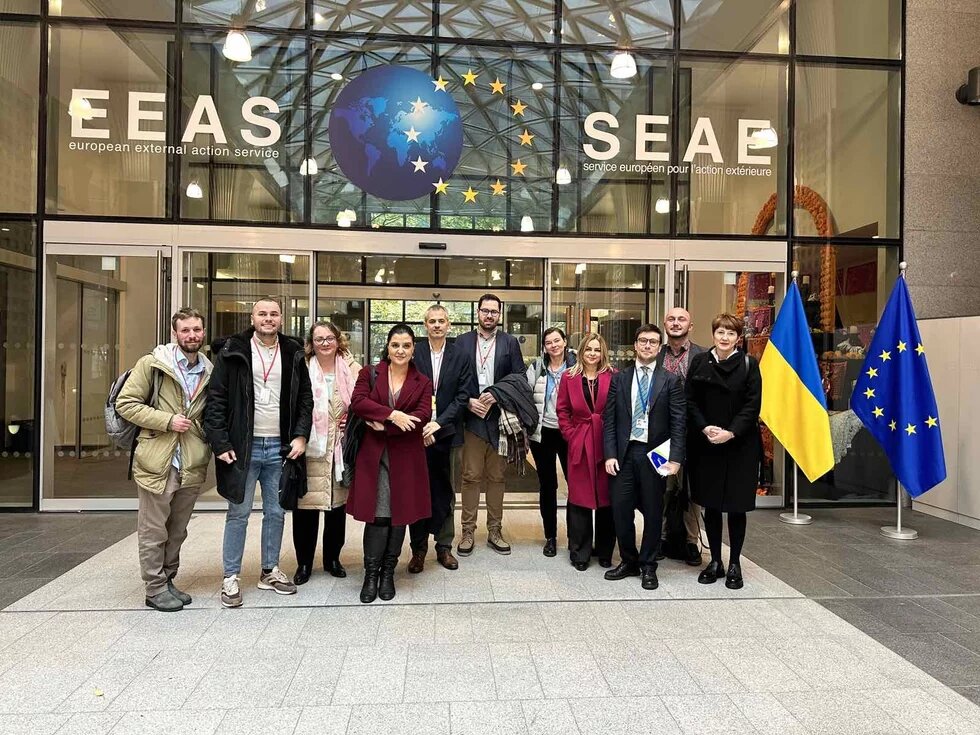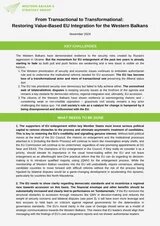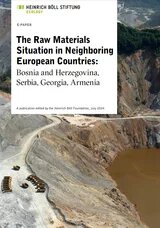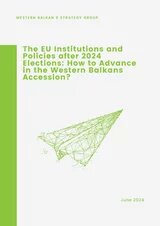The EU integration process should not be a transactional relation between EU Member States and candidate countries, but a truly transformational path based on democratic values and human rights.” This was the main message which was conveyed by the members of the Western Balkans 6 Strategy Group during the advocacy visit with stakeholders on 18-20 November 2024 in Brussels.

The visit took place shortly after the publication of the EU enlargement package and during the confirmation hearings for incoming Commissioners. The group engaged with MEPs, representatives of European Commission’s DG NEAR, the EEAS, the Council of the EU, as well as think tanks.
The Strategy Group emphasised that the potential decoupling of enlargement process from democratisation poses significant security risks for both candidate countries and EU Member States, opening space for increased foreign malign influences. If the region wants to seize the window of opportunity for EU accession, it is crucial to empower progressive and genuine, pro-democratic civil society actors and the media to press ahead with a new vigour to disrupt the status quo.
During the meetings with different stakeholders, the Strategy Group pointed out the importance of regaining popular support for the EU integration of the Western Balkans region. They highlighted the need to avoid discrepancies in the public communication and eliminate mixed signals from EU officials regarding the ongoing processes in respective countries, and strategically use negative incentives in order to restore the credibility of the EU enlargement..
For this purpose, WB6 Strategy Group prepared and presented a position paper, which is available here.
_________________
The Western Balkans Strategy Group was established by the Heinrich-Böll-Stiftung to conceptualise and present EU decision-makers with policy proposals aimed at revitalising the EU Accession process of the Western Balkans countries in line with progressive, green, and gender-sensitive values. The group consists of prominent civil society representatives from each of the Western Balkan countries.
This article first appeared here: ba.boell.org


